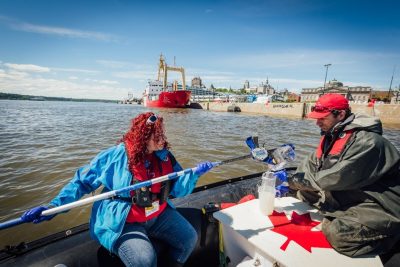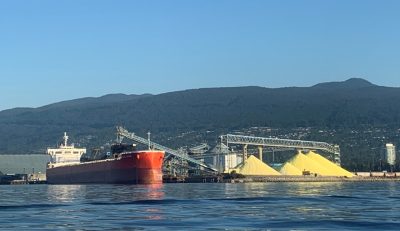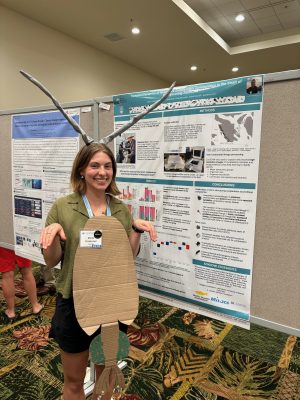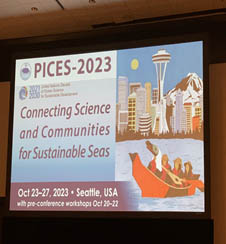Pacific salmon are highly sensitive to ocean acidification – regardless of how much they eat
Climate change is driven in part by excess carbon dioxide emissions, much of which is absorbed by the ocean, a process known as ocean acidification.
“Ocean Idioms” to teach you about our oceans
In honour of World Ocean Day, we present OCEAN IDIOMS!
Using environmental DNA to map biodiversity across Canada’s three oceans
The ability to detect the distribution of not only widespread, but also rare and endangered, species using eDNA allows researchers to identify critical habitats and biodiverse areas requiring protection.
IOF faculty and students win awards from the Peter Wall Legacy Awards program
These awards are one of the largest internal award programs at any university in North America. The suite of awards will support the research activities of tenure-track faculty members at all stages of their career, and those of Master’s and doctoral students.
Why what happens on the land is critical to the health of our oceans
What is the significance of these myriad small streams to the surrounding ocean, so important to people’s livelihoods, culture, and well-being in British Columbia?
Deniz Coskuner (MSc OCF) wins Best ECOP poster at PICES 2024
Her poster was entitled “Temporal dynamics of nearshore zooplankton communities in the Strait of Georgia: Implications for ecosystem health”
Pelagic Ecosystems Lab wins BC Conservation & Biodiversity Award
The award will fund a project to provide high resolution zooplankton biodiversity data by integrating eDNA, and the Zooscan imaging system, to establish a biodiversity benchmark for the wider BC coast.
Environmental DNA in nearshore ecosystems in urban & non-urban environments
Student profile: Grace Melchers, MSc student in the Pelagic Ecosystems Lab
PICES Symposium brought together science from all around the world
Several IOF members presented at the symposium, with Research Associate Dr. Anna McLaskey, winning the best oral presentation in the Biological Oceanography Committee section.
Dr. Brian Hunt receives NSERC Discovery Grant to research the impacts of urbanization on the coastal ocean
Dr. Brian Hunt will receive an NSERC Discovery Grant for work on the impacts of urbanization on coastal oceans, specifically regarding ocean cities.









